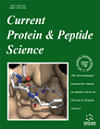
Full text loading...

This study aimed to investigate the role of glycosyltransferase-related genes (GRGs) in stomach adenocarcinoma (STAD) through bioinformatic analysis and experimental validation, exploring their potential as prognostic and therapeutic biomarkers.
We utilized datasets from TCGA-STAD and GSE26901 to establish training and validation cohorts. Prognostic gene signatures were constructed using differentially expressed genes and LASSO regression. Pathway associations were explored via Gene Set Enrichment Analysis (GSEA), and correlations with immune cell infiltration and immune checkpoint genes were analyzed using CIBERSORT, ESTIMATE, and TIDE. Drug sensitivity was assessed using OncoPredict, and GRG expression was confirmed via qRT-PCR.
We identified 20 GRGs as prognostic indicators in STAD, with 14 showing abnormal expression. A six-gene signature (B3GAT3, FUT2, GALNT15, GLT8D1, MGAT4C, and ST8SIA6) was constructed, demonstrating AUC values of 0.662, 0.702, and 0.711 in TCGA-STAD for predicting overall survival at 1, 3, and 5 years, respectively. The risk score was significantly associated with reduced survival and identified as an independent prognostic marker. The GRG profile was found to be correlated with immune cell infiltration, immune checkpoint genes, and drug responsiveness.
The study highlights the significance of GRGs in STAD prognosis and potential therapeutic applications. The GRG signature shows promise as a predictive biomarker, with implications for personalized medicine. Limitations include modest AUC values and the need for larger, diverse cohorts for validation. Future work should integrate multi-omics data and explore the roles of GRGs in immune modulation and drug sensitivity.
The GRG profile serves as a prognostic biomarker for STAD, offering new insights into therapeutic approaches and potential applications in other gastrointestinal cancers.

Article metrics loading...

Full text loading...
References


Data & Media loading...
Supplements